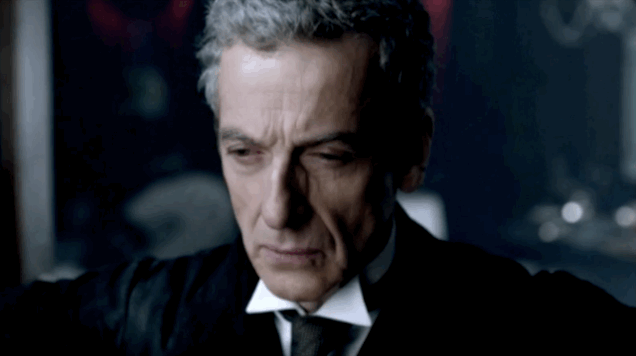One Day I Shall Come Back: Doctor Who Series 8
Tonight the greatest television ever created and broadcast will return for its 8th or 34th season (depending on how you reckon such things). A new actor (Peter Capaldi) will be taking over the role of the Doctor and by all accounts there will be a new tone and feel to the show as well. This is not uncommon; with every new Doctor or production team the series gets a mini-reboot of sorts. I think this is one of the reasons the show has lasted and remained as popular as it has.
And let’s face it, it is popular. All my enthusiastic hyperbole aside, the show has been around on TV, in novels, comic books and audio dramas for over 50 years now (there were also two movies but we shall never speak of those). What is the secret of its longevity? Well there are many and every person has their own take on it. I’ve discussed my personal feelings on the show here and here and other places as well. But the show has three major storytelling innovations built into the show’s premise. And it is the diversity of stories and how those stories can be told that makes Doctor Who so unique.
Solving the Problem of Getting “There”
The Universe is vast and complicated and really, really, really big. A science fiction show must first figure out how to get from one place to another. In order for a story to start you have to get somewhere or someone has to get to you. This usually involves big ships with large crews and some kind of propulsion like faster-than-light or warp drive or jump gates or some such thing. Mostly this can be hand waved away but it does have to be addressed and adhered to. And once you get to where you need to be in your big ship you need to figure out how to get down to where the action is. You can “beam” or use a shuttle craft, but time is always taken out of the story to address the problem of getting there.
Not so on Doctor Who. The Doctor basically has a tiny, magic box that instantly disappears and reappears directly and immediately into the story. And it’s bigger on the inside so you can bring along as many or as little people as you need or the story calls for.
“There” Can Be Anywhere & Anywhen
Every science fiction program/movie has an in-universe continuity. Star Trek for instance moves along in a steady linear storyline. The characters can and have interacted with the past or historical characters but this usually involves holograms or some kind or “temporal anomaly” that is strange and gets fixed by the end on the show. They always return to their “real” time. And some franchises can’t do this at all; imagine Luke Skywalker mingling in 2000s London. Not going to happen. This is not to say that these programs are not interesting and inventive; it’s just that they are limited to their own story-world regardless of how creative that world is.
Doctor Who has no limitation. Its basic story premise is “anywhere in time and space and the whole of reality”. The stories are not limited to one timeline or genre. It can literally be any kind or story it wants to be; a future fantasy, an historical, a western, a medieval romp or a tense political thriller. Any and all story ideas can be used and are part of the show itself.
To put it another way, on other shows different genres invade them where on Doctor Who he invades the different genres. Other shows use different genres to tell different stories. Doctor Who becomes that other genre. That opens a lot of possibilities for telling stories.
Always New/Always the Same
And so we come to recasting. In the mid-sixties when William Hartnell (the first actor to play the role) became too ill to continue the writers/producers were faced with a dilemma; cancel the show or recast? They chose to recast. Now the safe thing to do would have been to have a similar looking actor play the role similar to Hartnell’s performance. Instead they went a different direction; they cast an actor who looked completely different and who played the role in a wildly different way. This decision has turned out to be brilliant.
Now the idea behind this, continuity-wise, is the whenever the character of the Doctor gets too old or injured his body “regenerates” into a new body and a different aspect of his personality is emphasized. But, and this is key, it is still the same person.
For practical purposes this allows the show to, every few years, change and reinvigorate itself. It never becomes stale. It’s not always perfect (I’m long at you Colin Baker) but it is always fresh and, if nothing else, interesting. This is a single show, telling a multitude of stories, in constant state of change.
It is unique in television.
A New Era Begins
So tonight Capaldi’s rein begins. It will be interesting to see his take on the Doctor and to see what direction the show will go. I’ve no doubt it will be entertaining. There are a lot of stories to be told and a lot of places to see. And in a few years it will change all over again.












Likhon chowdhury says:
Conor says:
Andy Garcia says: